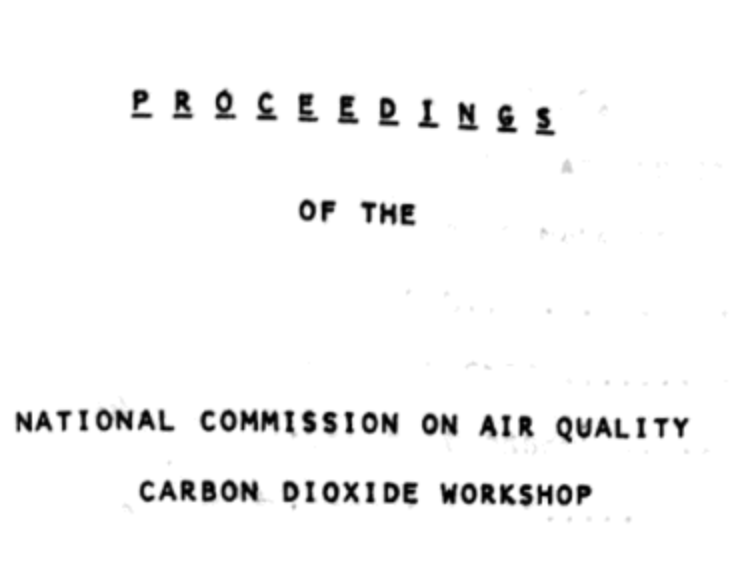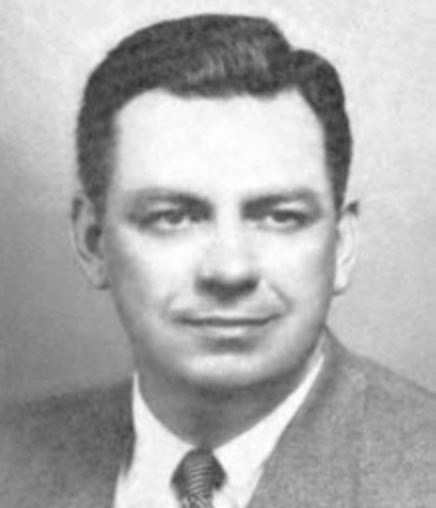Documents from Climate Investigations Center’s Climate Files archival portal continue to inform the discussion regarding culpability for the climate crisis. Most recently, in County of San Mateo v. Chevron Corp., et al., eight amicus briefs were filed supporting the plaintiffs seeking redress for climate change’s impacts on their communities.
One of the briefs, filed by a group of academics, cited 16 Climate Files documents, demonstrating oil corporations’ internal knowledge of their products’ “material dangers to the public,” failure to disclose that knowledge, and subsequent actions to “discredit climate science.” Experts Naomi Oreskes (co-author of Merchants of Doubt) and Geoffrey Supran of Harvard University, Robert Brulle of Brown University, Justin Farrell of Yale University, Benjamin Franta of Stanford University, and Stephan Lewandowsky of the University of Bristol, UK joined the Center for Climate Integrity to file the brief.
Energy in Depth, a “research project” funded by Independent Petroleum Association of America, targeted the timing of those filings as a furtherance of a “highly coordinated move,” suggesting a larger conspiracy. Though the filing of the briefs occurred on the same calendar date, as The Los Angeles Times’ Michael Hiltzik points out, a check of the court’s procedural schedule shows the day at question was a standard “court-designated deadline.”
As industry forces continue to push back on prudential climate solutions, we will continue to preserve the historical record of climate change science, denial, and regulatory delay.
Climate Files In the News
How the Fossil Fuel Industry Got the Media to Think Climate Change was Debatable
Washington Post, Amy Westervelt
This op-ed by Amy Westervelt, award winning journalist, writer, editor and host of the podcast Drilled, utilized documents found on Climate Files to illustrate the history of corporate climate change denial through strategic media campaigns that leverage networks of PR firms and front groups. Covered for the first time in Drilled, and released in full in Westervelt’s story was the 1982 Evolution of Mobil Public Affairs Program document.
Westervelt used the 1982 document, among others in the Climate Files collection, to demonstrate industry’s “deliberate strategy” to influence media’s climate change coverage “because various internal documents from ExxonMobil, Shell, the American Petroleum Institute and a handful of now-defunct fossil fuel industry groups reveal not only the industry’s strategy to target media with this message … but also its own preemptive debunking of the very theories it went on to support.” Other documents highlighted in the piece include:
- 1991 Information Council on the Environment Climate Denial Ad Campaign
- 1991 Information Council on the Environment Test Denial Campaign Plan and Survey
- 1995 Global Climate Coalition Draft Climate Change Science Primer
- 1998 American Petroleum Institute Global Climate Science Communications Team Action Plan
Battling for Big Oil: Manufacturing Trade Group Leads Assault on Climate Suits
Climate Liability News, Karen Savage
Another counter-offensive to climate litigation – the National Association of Manufacturers (NAM). This story details NAM’s role in supporting “select segments of its membership,” unveiling ties to Exxon and a law firm that defended tobacco firms in the 1990s. Citing a recently updated Climate Files document, this reporting shows NAM’s track record in representing fossil fuel interests.
The Global Climate Coalition, an organization responsible for the creation and promulgation of climate denial in the 1990s and early 2000s, was created within NAM in 1989. The Climate Files document shows the GCC focusing on climate science denial and uncertainty, despite acknowledging anthropogenic climate change a year earlier.
New Documents on Climate Files
1980 National Commission on Air Quality Carbon Dioxide Workshop

First brought to light by Nathaniel Rich’s NYT Magazine article “Losing Earth,” this document is a transcript of a 1980 meeting held by the National Commission on Air Quality (NCAQ). The meeting, requested by Congress, was held to discuss the societal implications of climate change in order to address problems “from increased carbon dioxide emissions.” Despite agreement that climate science merited serious action, this transcript highlights how the complexity of the issue and the range of vested interests made curating climate policy a painstaking task. Absent a consensus on the language and scope of the workshop’s policy prescriptions, confirming policy itself proved to be fraught.
1965 API President “Meeting the Challenges of 1966”

This 1965 document, detailed by Benjamin Franta in a letter to the Editor of Nature, contains the annual remarks of the American Petroleum Institute’s (“API”) President, Frank Ikard. Ikard guaranteed that a 1965 Science Advisory Committee report highlighting climate change and carbon emission hazards would “fan emotions, raise fears, and bring demands for action.” Ikard emphasized that “[o]ne of the most important predictions of the report [was] that carbon dioxide is being added to the earth’s atmosphere by the burning of coal, oil, and natural gas,” which would lead to “marked changes in climate beyond local or even national efforts.” Confronting what he called “charged emotionalism,” Ikard called on industry to “do what [they] can to put a good cause on a rational track” rather than let it be “obscured by rash statements and fanciful notions.”

